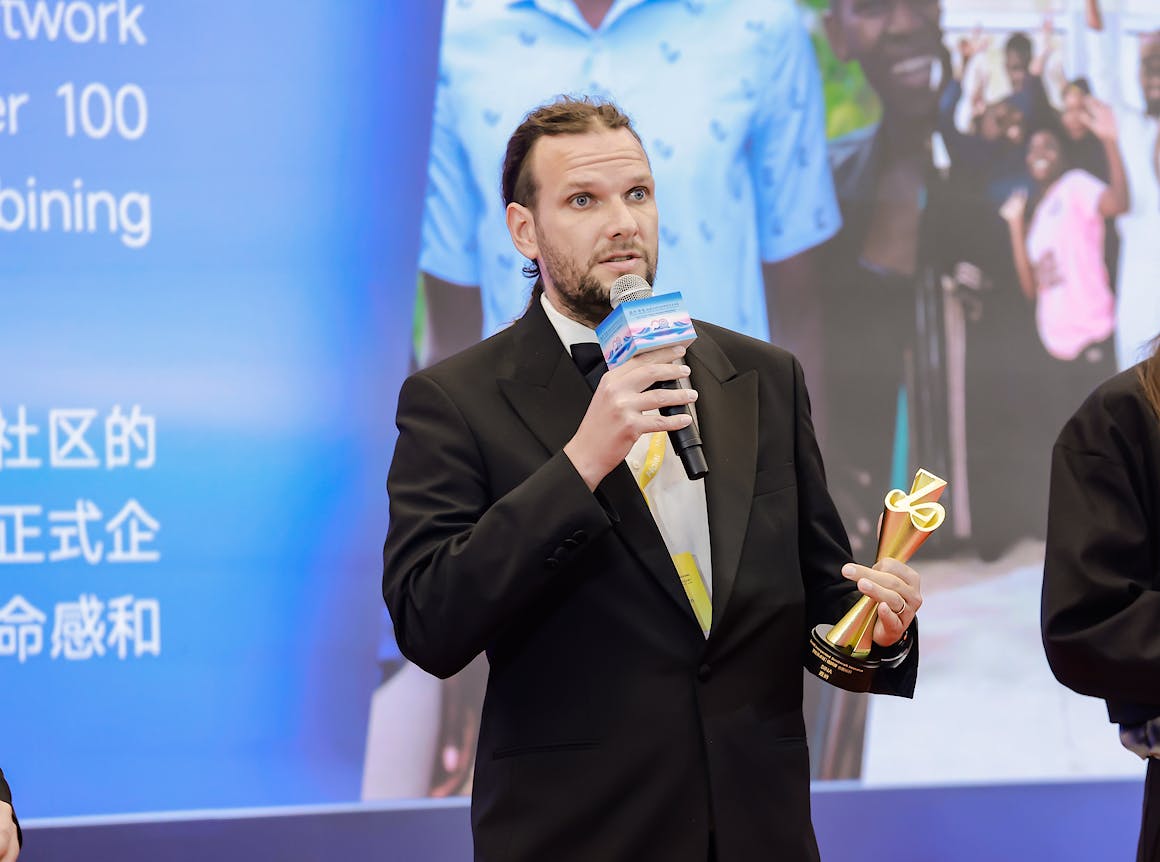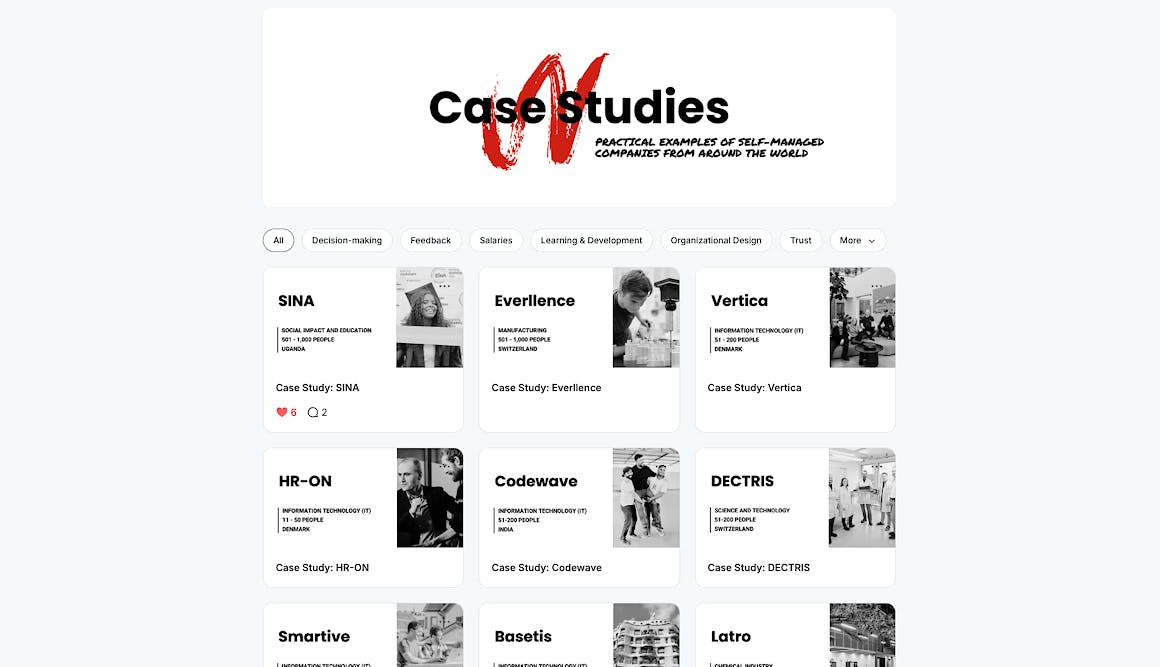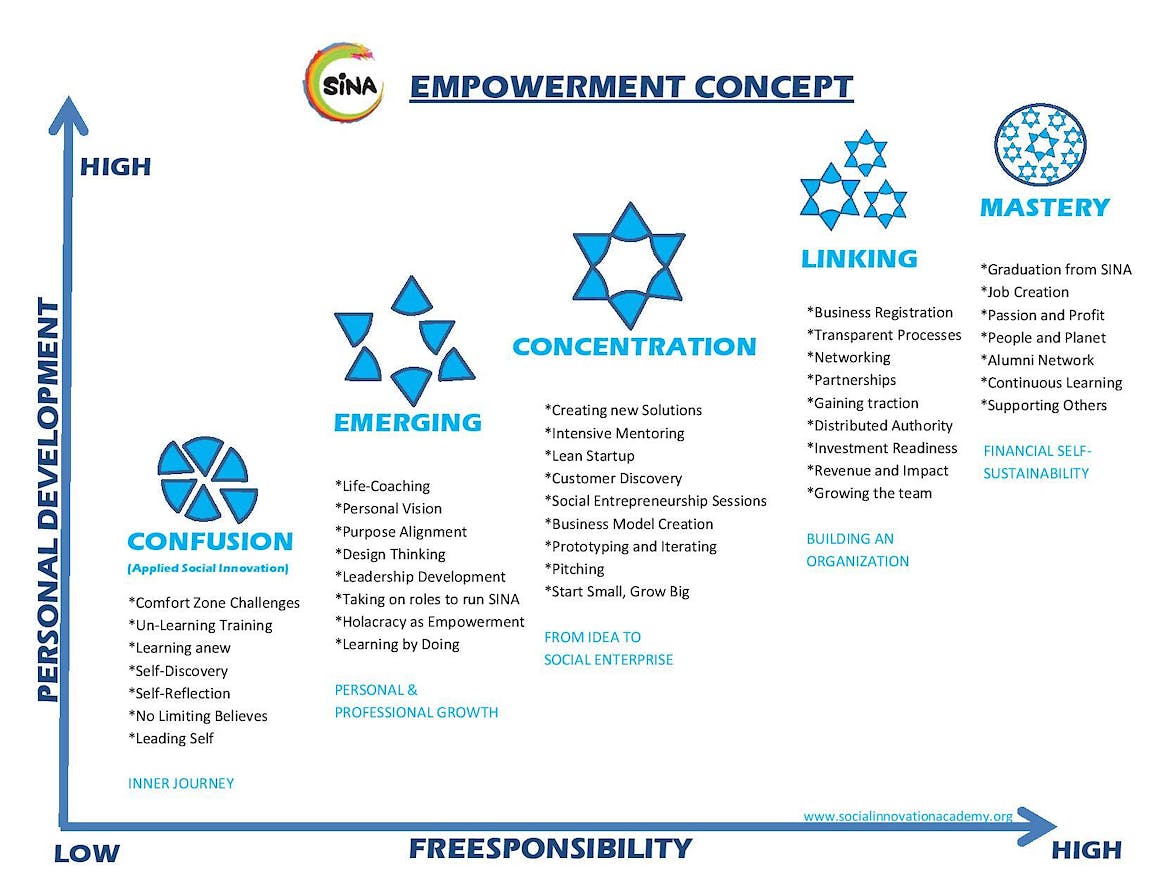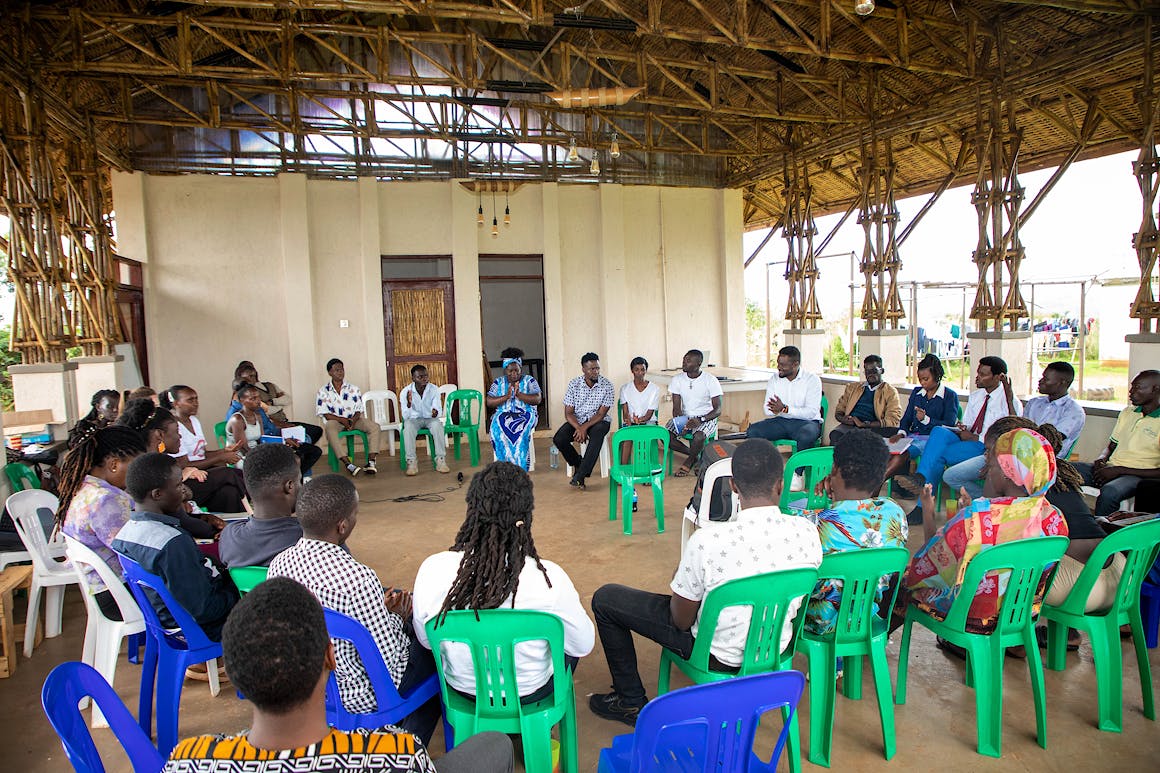From Refugee Camps To Self-Management: What We Can Learn From SINA

Last week, I had the chance to meet Etienne Salborn in China at the ZeroDX conference.

Etienne is the founder of the Social Innovation Academy (SINA), a movement that transforms marginalized youth, often from refugee backgrounds, into social entrepreneurs.
At the ZeroDX conference, Etienne walked on stage to accept the award for the second year in a row.
ZeroDX celebrates pioneers of “zero distance” organizations, those who dissolve boundaries between leaders and learners, insiders and outsiders, companies and communities.
Watching Etienne win again was no surprise. SINA is one of the most radical and inspiring examples of self-management I’ve ever seen.
And the timing couldn’t be better.
Just as I was getting back from China, our colleague Emma de Blok published an extensive case study about SINA in our community platform.
It dives deep into their origins, structure, and impact.
I’ll share some highlights here, because SINA’s story is too important not to.

From one hub to a movement
SINA was born in Uganda in 2014, in a small community near Kampala.
The idea was simple yet daring: instead of providing aid to disadvantaged youth, why not create spaces where they could take charge of their own futures?
The experiment worked. Within a decade, SINA has grown into a network of 23 hubs across nine countries.
Each hub hosts 50–100 “scholars,” most from marginalized or refugee backgrounds.
There’s no central HQ pulling the strings. Instead, the model spreads organically.
Small groups of alumni return to their home regions to start new hubs, replicating the system in their own context.
The results speak volumes:
- Over 120 social enterprises launched.
- More than 1,600 jobs created in areas like health, education, agriculture, and ecology.
- Scholars who graduate typically triple their income compared to peers.
But the real magic lies not in the numbers, but in the way the system is designed.
A different kind of education
At SINA, there are no teachers, no grades, no lectures. The line between learner and leader doesn’t just blur. It disappears.
Scholars join the community with little formal education and often heavy personal trauma.
Over time, they grow into the roles that run the hub: operations, finance, outreach, coaching.
Some go on to start social enterprises. Others stay to mentor the next generation.
This creates a regenerative cycle: learners become contributors, contributors become entrepreneurs, and a new wave of learners enters to begin again.
It’s not aid. It’s not charity. It’s empowerment.
Freesponsibility
At the heart of SINA is a simple but powerful principle: freesponsibility.
It sounds like a paradox, but it’s not.
Freedom and responsibility are two sides of the same coin. The more responsibility scholars take on, the more freedom they gain.
Instead of top-down instruction, scholars are invited to step into real roles within the community. They’re free to make decisions, but also accountable for outcomes.
This balance makes self-management real and tangible.
The empowerment journey
One of the most fascinating things about SINA is its five-stage empowerment journey.

Each scholar progresses through stages at their own pace, typically over 12–18 months.
The stages are less like a curriculum and more like a rite of passage. It's a process of unlearning, growing, and stepping into power.
Stage 1: Confusion
The first two to three months are deliberately disruptive.
Scholars arrive expecting traditional schooling: lectures, timetables, trainers. Instead, they’re thrown into a system that feels chaotic at first.
They confront limiting beliefs (“I can’t,” “I’m not good enough”) and learn tools like design thinking, self-learning, and conflict resolution.
One signature activity is the Comfort Zone Challenge, where scholars head into Kampala with a list of bold tasks, like dancing in the street or asking for a job in a random shop.
The goal is to break patterns of fear and build confidence.
It’s messy. It’s uncomfortable. But it lays the foundation for everything to come.
Stage 2: Emerging
Once scholars find their footing, they begin taking real responsibility for running the community. Logistics, accounting, outreach, training. Everything is self-organized.
Through an Apprenticeship Program, scholars step into roles that build practical skills.

They also take part in an Emerging Bootcamp, where they form small teams to tackle real community problems, testing their first entrepreneurial ideas.
A memorable exercise at this stage is running a community canteen. Scholars must organize roles, make it profitable, and handle conflicts; essentially a crash course in self-organization.
Stage 3: Concentration
Here the focus shifts from ideas to ventures. Scholars prototype their solutions, test them with real customers, and refine their business models.
To move forward, their teams must prove traction: at least $150 in revenue, paying customers, or demonstrable demand.
This isn’t theory. It’s real entrepreneurship, with all the uncertainty and hustle that entails.
Stage 4: Linking
Now, teams formally register their enterprises, open bank accounts, and build the infrastructure to operate independently.
By this stage, scholars aren’t just learners. They are now founders of their own social enterprises.
The transition from association to fully-fledged social enterprise is a milestone. It marks the moment they’re ready to stand on their own.
Stage 5: Mastery
Graduation isn’t the end, because growth never stops.
At this stage, ventures scale beyond the SINA hub. Founders may join the SINA Acceleration Program for six months of targeted mentorship and training.
They also remain part of the global SINA network, mentoring new scholars and sharing resources.
Mastery is less a finish line than a launchpad for ongoing growth, contribution, and regeneration.

Coaching as the glue
Throughout the whole Empowerment Journey, coaching is the thread that holds it together. The coaching is grassroots and peer-led.
Each scholar is paired with a coach from the start. This is often someone who was once in their shoes.
These aren’t authority figures handing out answers. They’re trained life coaches who hold space, ask powerful questions, and help scholars find their own path.
Coaching sessions focus on personal goals, obstacles, and reflections.
And it works: most scholars keep returning to their coaches even when it’s no longer mandatory.
A call to support
SINA has already launched more than 120 enterprises and transformed the lives of thousands of young people.
But the demand far outstrips their capacity. For every scholar they accept, many more are turned away.
If you feel inspired by their work, consider supporting them directly.

Donations go toward enabling disadvantaged youth to become the change they want to see in the world.
👉 Donate here
Final thoughts
Meeting Etienne in China, watching him win the ZeroDX award twice in a row, and then reading Emma’s case study reminded me why we do this work.
SINA shows us that self-management is not about structure alone.
It’s about unleashing human potential in places where the world least expects it.
Want more?
This article is just a glimpse of the extensive case study that Emma has published on our platform.
If you want to dive deeper, there are two ways to access it:
- As a company: by becoming part of our Rebel Cell network (SINA is part of the network)
- As an individual: by joining our Progressive Organizational Design Masterclass
In both cases, you’ll gain access to not only SINA’s case study but also more deep-dives into pioneers like Haier, Buurtzorg, NER Group, and many others.

